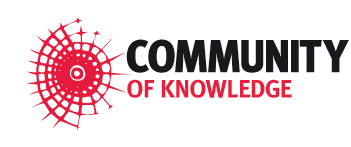-
31. August 2015 von Communication & Dissemination Expert Shilpi Jain
An initiative to explore and showcase India's success in meeting development challenges in terms of policy and practice, the "Knowledge Sharing" approach through the Knowledge Partnership Programme aims at gathering and uptake of evidence on issues central to India's impact on global poverty and promote sharing of Indian evidence, best practice and expertise with Low Income Countries in order to facilitate evidence-gathering and uptake. [weiterlesen]
-
27. Juni 2012 von Aleksandar Ivanov
Forecasting new products is hard for a retailer like Tchibo. There is no past data to use in statistical models, consumer surveys and test sales are expensive. Tchibo decided to apply Social Forecasting - a new approach from the Enterprise 2.0 area. Social Forecasting utilizes the knowledge of employees and transforms it into hard numbers, e.g. sales forecasts for new products. With Social Forecasting Tchibo was able to achieve extreme cost savings while maintaining a high accuracy in forecasting demand for new products. [weiterlesen]
-
27. Juni 2012 von Dr. Milad Jasemi, Morteza Piri
In this paper after a review on the concept and literature of knowledge management, the conceptual model of a successful knowledge management system that is currently being applied in a research and development organization is presented and discussed. The main contribution of the paper is presenting the model in its useful and practical status without becoming involved in theoretical discussions that have different shapes but similar meanings. [weiterlesen]
-
Experiences from a Southern African Organisation
16. Mai 2011 von Norbert Herrmann
After giving a working definition based on his organisation’s understanding of Knowledge Management (KM), the author outlines his ‘prospected’ method to process KM within his organisation. Based on first-hand experience, in this case study main barriers to implementing the ‘prospected’ KM process are presented, including some ideas and ways to deal with selected barriers.
As the author’s experience derives from an intercultural context, this paper addresses issues to consider when working in such an environment.
As findings, main cultural challenges are identified as: different influences of hierarchies; language barriers even within a single organisation, differences in individuals’ skills, priority of ad-hoc activities and different accessibility and usage of technology. [weiterlesen]
-
16. Mai 2011 von Dipl.-Ing. Michael Fegerl, Univ.-Prof. Dr. Wilfried Wieden
Increasingly people have to develop knowledge across cultural and language boundaries. Even though recent technologies offer powerful communication facilities people often feel confronted with problems which clearly reduce their chances for making their efforts a success. Concrete evidence concerning such problems is in this article derived from an EU-project in which both authors are currently involved. This contribution intends to describe selectively observed problems and experiences and interim results from the application of procedures and tools to remediate the observed problems. [weiterlesen]
-
Case study about a Knowledge Management project at West Africa Water Initiative (WAWI)
16. Mai 2011 von Ewen Le Borgne, Jaap Pels
A team visited and interviewed implementing partners on the ground in Ghana, Mali and Niger to document their experiences within West Africa Water Initiative (WAWI). The aim of these missions was literally to find facts, to collect documentation and figure out what lessons have been learned. These fact-finding missions have provided invaluable insights. They have been incorporated in this document which formulates a feasible and practical strategy on knowledge management and communication for WAWI and its successor projects in West Africa. [weiterlesen]
-
Case study: Saveh rolling & profile Mills company
21. Februar 2011 von Yasaman Farashahian, Amin Abbasi
Business enterprises typically are valued at the net tangible assets recorded on their books. When the market value of a firm succeeds its book value, conventional stock market theory regards the premium as the market’s assessment of intangible assets or intellectual capital of the firm. Svieby classified intellectual capital into three categories: employee competence, internal structure and external structure. The managing and measuring of intellectual capital are widely discussed in commercial applications. The implementation of key factors in intangible assets using indicators in day-to-day operations highlights the company’s value in creating processes. Many other firms apply similar frameworks in managing their intellectual capital, for example: Exxon Chemical’s, “Learning Forums”; World Bank’s, “Communities of Practice”; Toyota’s, “Alignment Rooms”; Ryder Trucks’, “Knowledge Center”; Allied Signal’s, “Mental Model Learn”; and Scott Paper’s “Real Bottom-Line Customer Service”. The purpose of this paper is to explore how an organization can adopt the concept of knowledge management and subsequently measure the intellectual capital - specifically in our company. [weiterlesen]














